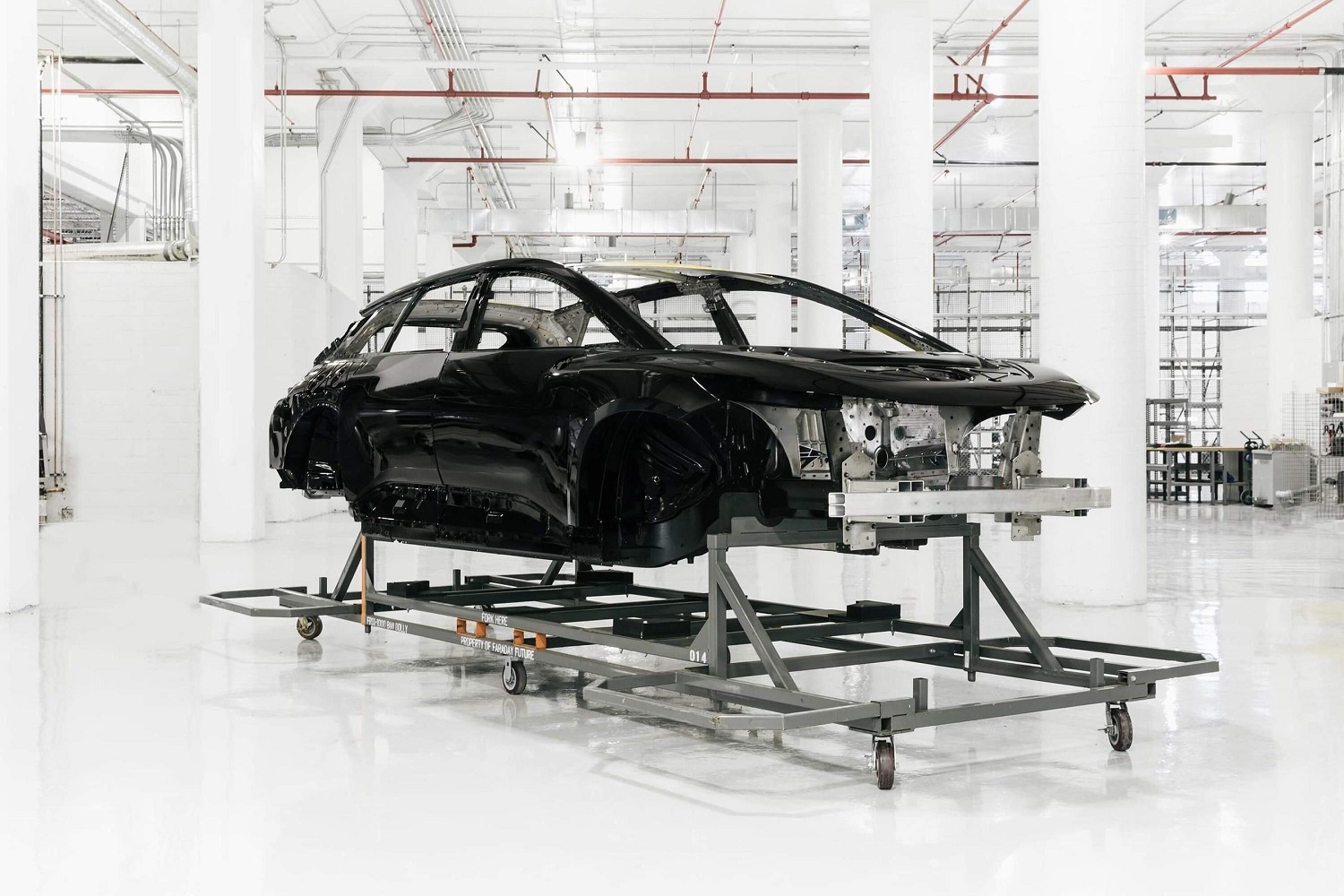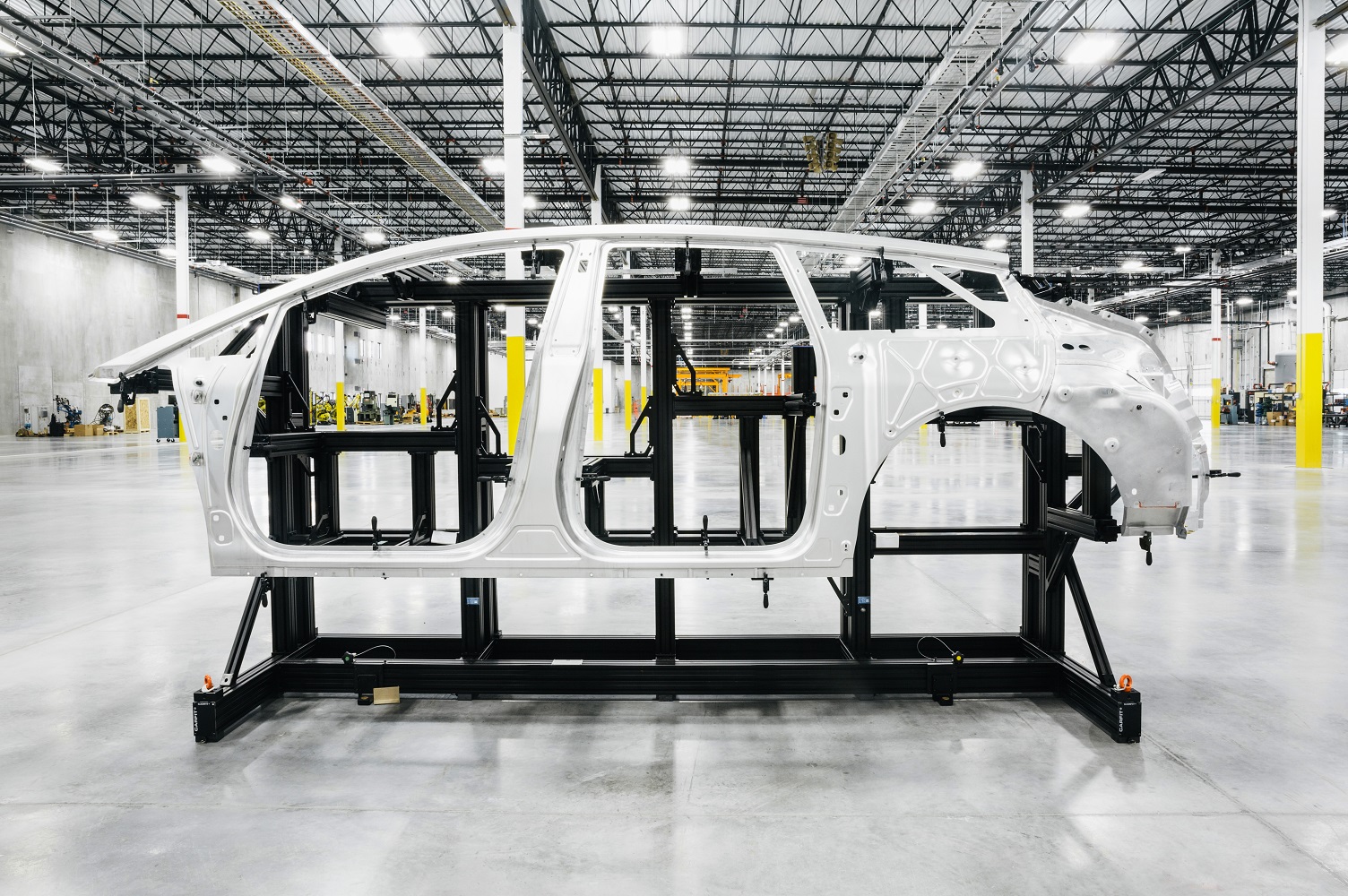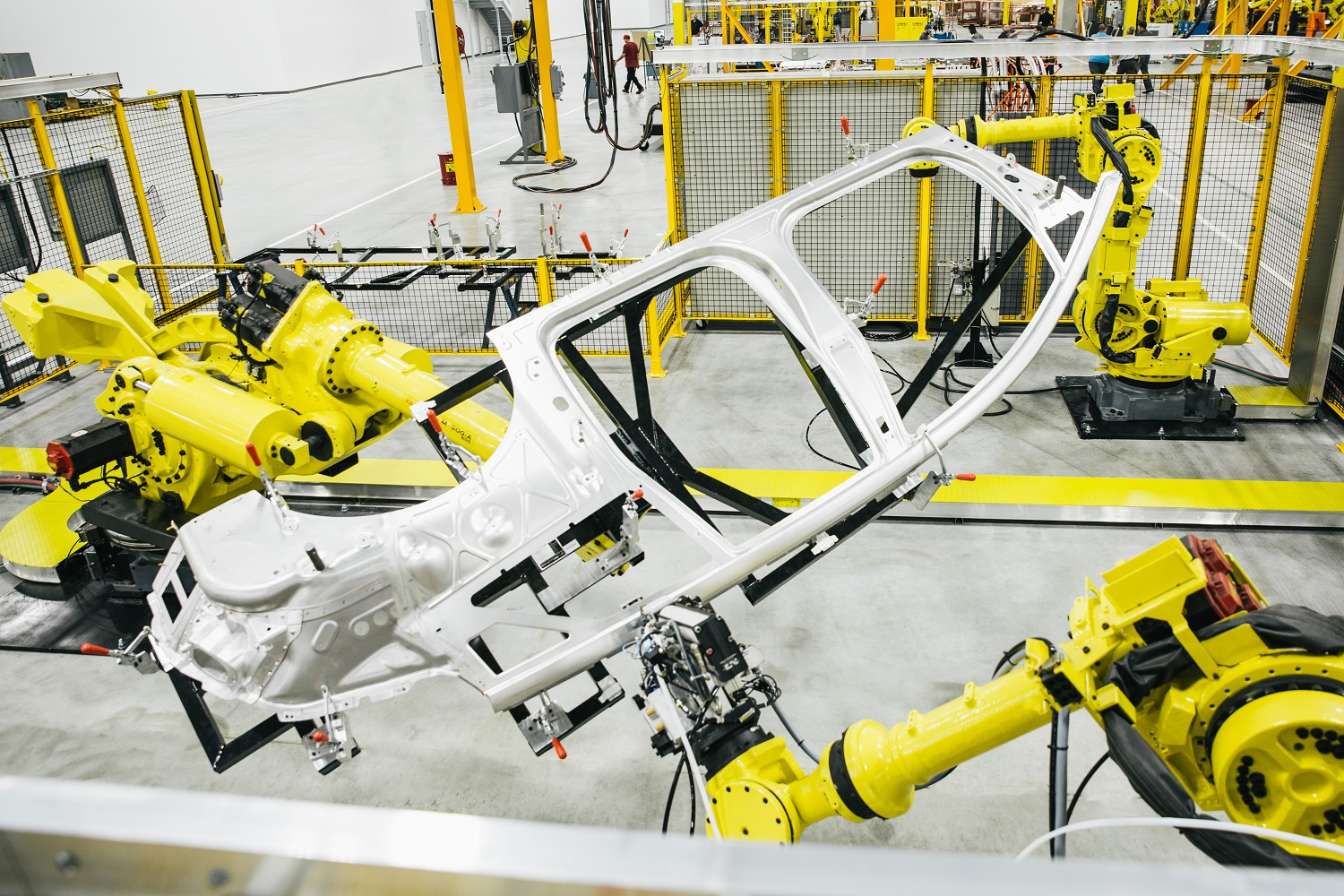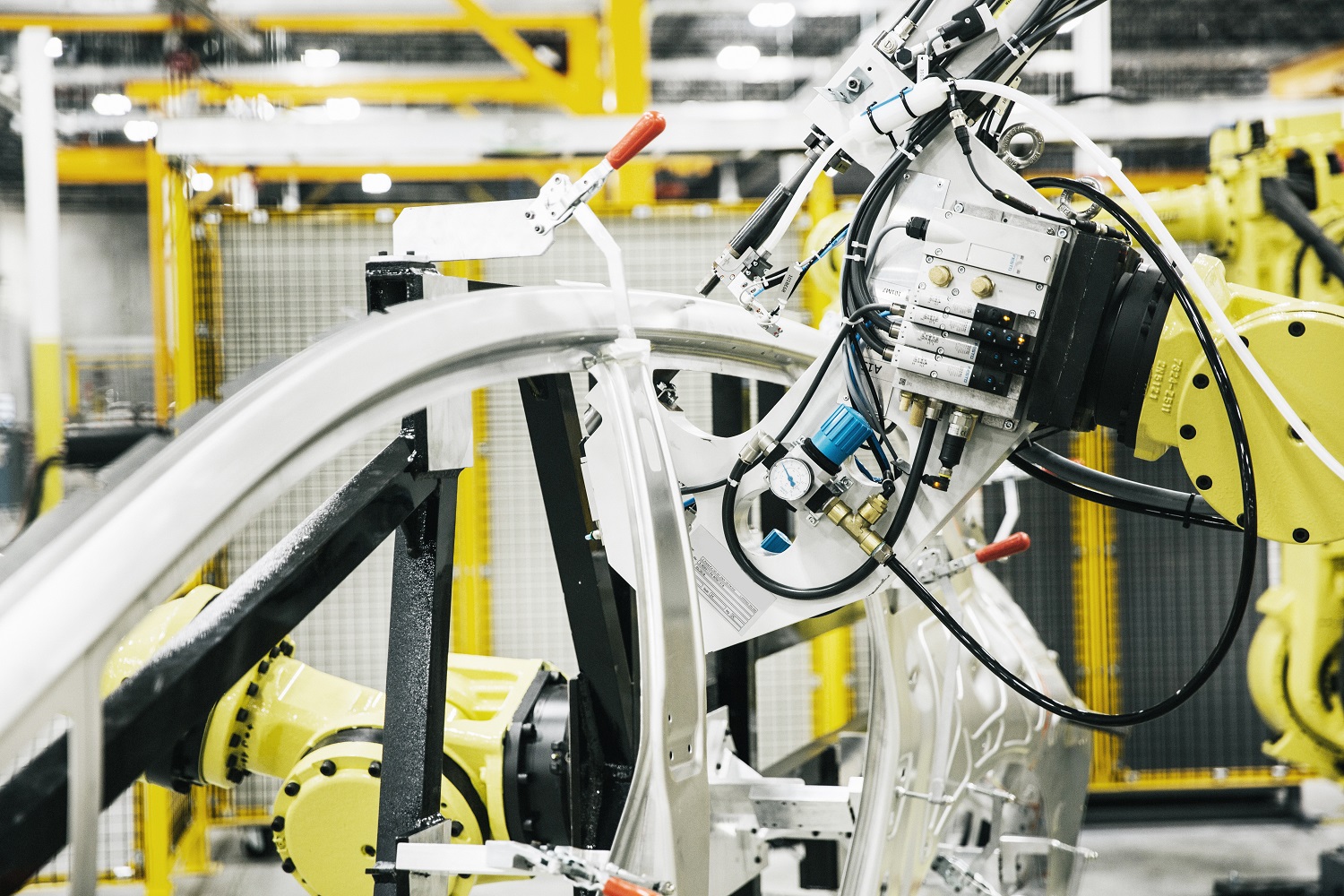Has Faraday Future finally stepped off the roller coaster ride it’s been stuck on since the FF 91’s botched CES debut?
After serious financial issues rocked Faraday Future like a ship in a gale, the young California-based, Chinese-backed company spent the first half of 2018 buried deep in an unusual silence. It has emerged from dormancy to announce that it has completed the first FF 91 body-in-white, an industry term used to denote a full, finished body without paint, trim, and interior pieces, or powertrain components. That’s a major step on the path to mass production.
Getting there was easier said than done; Faraday explains that the FF 91 uses more than 1,500 self-piercing rivets that hold its aluminum structure together, for example. Faraday also mastered the difficult technique of welding aluminum to steel and incorporated “transducerized” torque tools into the production process to improve traceability, error-proofing, and precision.
Faraday notes that it reached this significant milestone slightly ahead of schedule. It still aims to begin series production of the luxurious, all-electric FF 91 in December 2018. The first customers to receive the car will be the ones who reserved it when the order book opened in early 2018. Production will take place in a former Pirelli factory located about 200 miles north of Los Angeles, where the company’s headquarters are located.
The specifications sheet hasn’t changed. Faraday Future still predicts the FF 91 will perform the benchmark zero to 60 mph run in under three seconds, a figure that will make it one of the fastest cars in the world. Bugatti’s Chiron does the deed in 2.3 seconds; the limited-edition Dodge Challenger Demon and top-spec variants of the Tesla Model S match that figure. Range? More than 300 miles, according to early estimates. That figure beats the Model S and Jaguar’s I-Pace.
Pricing hasn’t been announced. “We will officially announce the pricing later this year. It will be in the premium segment,” a company spokesperson told Digital Trends via email. We expect it will start somewhere in the low six digits.
Of course, as Tesla recently found out with the Model 3, turning predictions into a fleet of reliable, high-quality cars is a tall order. Time will tell whether Faraday Future can learn from its rival’s mistakes or if it will fall in the same trap.
Update: added FF quote about pricing.
Editors' Recommendations
- Maserati is going electric, and it’s starting with a 1,200-hp luxury coupe
- Polestar starts production of its Tesla Model 3 rival in China
- Faraday Future plans shuttle service between Los Angeles and Las Vegas
- Maserati is balancing the past and the future to reinvent all of its cars
- 2020 Audi E-Tron Sportback is all about style, but still has substance








